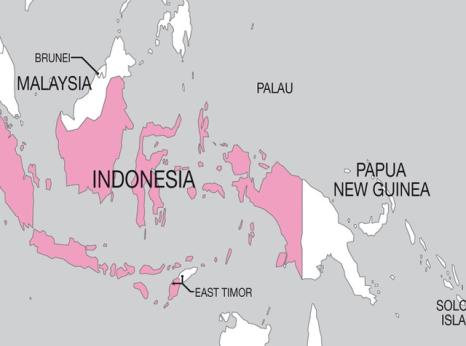Indonesia: Moluccan Activists’ Appeal Rejected

On 7 April 2021, as many as twenty fully armed soldiers raided Alexsander Workala's house. Upon finding a book and the “Benang Raja”, a flag of the Republic of South Maluku (RMS), Alexsander was taken by the troops to the West Seram (SBB) Police. At the police station, Alexsander received a beating to his head. That same night he was questioned, and he confessed to being an activist of the Republic of South Maluku (RMS) and that he got the flag from Pieter Likumahua. The police accused him of treason.
The next day, 8 April 2021, the police came to Pieter’s house to question him related to Alexsander’s case. However, after one night of investigation, Pieter was named a suspect and detained at the SBB police prison. Benjamin Naene, who accompanied Pieter, was also arrested and detained after confessing to the police that he is an activist of the RMS. Both were charged with treason.
On 30 June 2021, the police informed the lawyer that Pieter's detention time would be prolonged until 6 August for the sake of investigation. On 19 August 2021, the trial of Pieter, Alexsander, and Benjamin started at Dataran Hunipopu District Court. During the trial period from August to December 2021, the three activists were detained in West Seram Prison. On 28 December 2021, the judges found the three activists guilty of treason. Pieter was sentenced to three years and three months in prison, while Alexsander and Benjamin were sentenced to three years in prison.
On 4 January 2022, Pieter, Alexsander, and Benjamin sent an appeal to the Ambon High Court. On 23 February 2022, the Ambon High Court rejected their appeal and upheld the District Court’s guilty verdict. Due to the Covid-19 pandemic, geographical situation, and the absence of lawyers, Pieter, Alexsander, and Benjamin missed the deadline to appeal for cassation to the Supreme Court, thus they were legally deemed to have accepted the High Court's decision.
The “treason” (makar) articles in the Criminal Code are so broad that they are widely used by the Indonesian government to silence critics and activists. The treason articles in the Indonesian Criminal Code were adopted from those in the Dutch Colonial Criminal Code, which had the purpose to silence critics and pro-independence activists during the colonial era. Now, the same articles have been used by the Indonesian government to imprison political activists in Maluku and Papua.
The Indonesian authorities have used the criminal code provisions, mainly Articles 106 and 110 KUHP, to prosecute pro-independence political activists in Maluku and Papua simply for peacefully exercising their rights to freedom of expression, association, and assembly. Since 2007, dozens Mollucans have been charged with “treason” (makar) under articles 106 and 110 of the Indonesian Criminal Code (KUHP).
Amnesty International does not take any position on the political status of any province or region in Indonesia, or any other state, including calls for independence. However, the organization believes that the right to freedom of expression also includes expression of political nature.